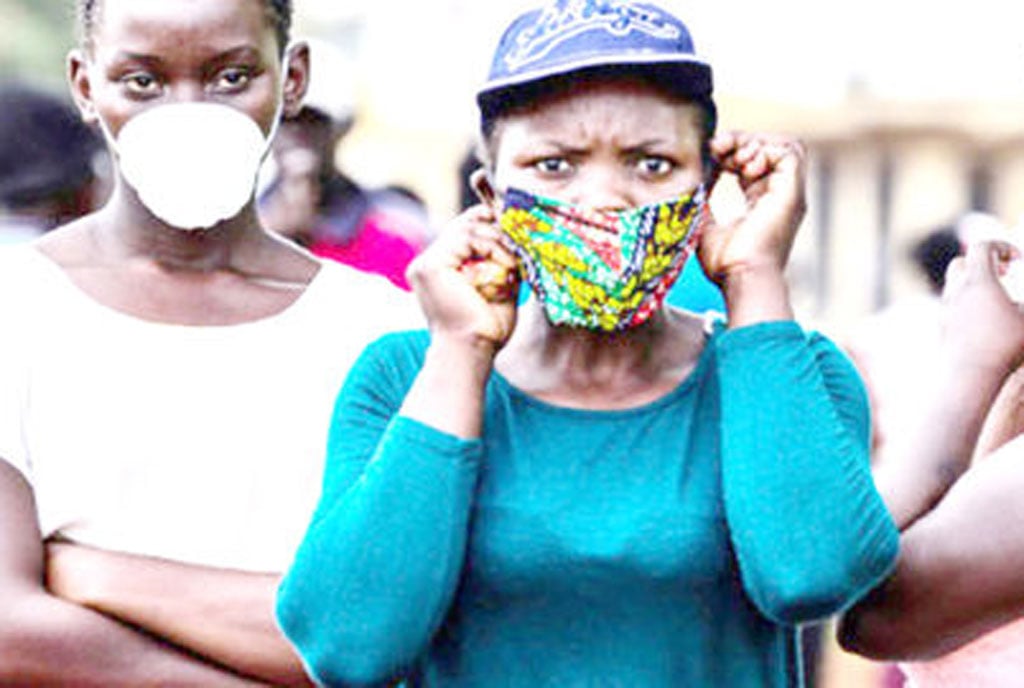Flu wave coming to an end, says doctor

The Commander of Air Forces, Lt Gen Charles Lutaaya, receives the first dose of Covid-19 vaccine during the launch of the exercise at senior officer’s diagnostic centre in Mbuya in 2021. PHOTO | DAVID LUBOWA
What you need to know:
- This illness, according epidemiologists, is characterised by a runny nose (usually clear mucous), headache (mainly frontal), intermittent fevers, dry cough, and general body weakness. These may persist for a couple of days before complete reduction.
The Ministry of Health has confirmed another wave of viral influenza, currently circulating within the population.
This illness, according to epidemiologists, is characterised by a runny nose (usually clear mucous), headache (mainly frontal), intermittent fevers, dry cough, and general body weakness. These may persist for a couple of days before complete reduction.
Dr Allan Muruta Niyonzima, the commissioner of Integrated Epidemiology, Surveillance and Public Health Emergencies, yesterday said the current wave hit the country in September last year, but is almost coming to an end.
“It happens every wet season. The wave we have started in September last year and it is going down. There is no need to worry,” Dr Muruta said.
Ms Mariam Kataike, a mother of two girls from Kikubamutwe in Kabalagala, Makindye Division, said her twin daughters, aged three years have been battling flu since third term.
“I thought they were more exposed when they were at school but I think I was wrong. They got holidays a month ago but I have not yet noticed any improvement despite giving them different treatment,” Ms Kataike said.
A resident of Kisugu Parish, Makindye Division, who only identified herself as Katushabe, said she started the New Year on a bad note, after she contracted flu.
“I was ok on Christmas but on the New Year’s Day, I developed some symptoms. My nose started itching and I developed a sore throat,” she said.
First Lady Janet Museveni was on January 1 declared Covid free after testing negative for the virus. She had tested positive for Covid-19 on Christmas Day.
In May 2023, the World Health Organisation (WHO) declared that Covid-19 is no longer a global health emergency because of a general decline in infections and deaths. However, it warned that countries should continue with their internal mitigation measures because many people are still getting infected and dying from the virus.
Dr Muruta advised the public to embrace the Covid-19 Standard Operating Procedures (SOPs) including wearing masks and sanitising, to minimise transmission of the current seasonal influenza.
According to WHO, seasonal influenza (the flu) is an acute respiratory infection caused by influenza viruses. It is common in all parts of the world.
Influenza spreads easily between people when they cough or sneeze. Vaccination is the best way to prevent the disease. Symptoms of influenza include acute onset of fever, cough, sore throat, body aches and fatigue.
Treatment should aim to relieve symptoms. People with the flu should rest and drink plenty of liquids. Most people will recover on their own within a week. Medical care maybe needed in severe cases and for people with risk factors.
The world health body also estimates that there are around a billion cases of seasonal influenza annually, including three to four million cases of severe illness. The disease is also responsible for 290,000 to 650,000 respiratory deaths annually.
In addition, WHO indicates that 99 percent of deaths in children under five years of age with influenza-related lower respiratory tract infections are in developing countries.
The Executive Director of Mulago Nation Referral Hospital, Dr Rosemary Byanyima, however, said the hospital had not registered a rise in flu cases.
In May last year, the country was hit with another wave of flu and cough caused by the influenza virus.
“The Ministry of Health would like to inform the general public of a wave of viral influenza (flu) illness circulating within the population. This illness is characterized by a runny nose, headache, intermittent fevers, dry cough, and general body weakness,” the statement released by Dr Henry Mwebesa, the Director General of Health Services at the Ministry, read.
The ministry revealed in the statement that the commonly affected groups are children under five years, school-going children, and the elderly.
“About 2 percent of individuals who get viral influenza may get severe respiratory disease. However, there is no record of any consistent increase in hospitalisation,” the statement reads further.
The ministry also urged the public to embrace Covid-19 vaccination, saying the deadly viral disease was still affecting some Ugandans.
In her Tuesday (January 2, 2024) tweet, the Health minister, Dr Jane Ruth Aceng, said President Museveni had directed her to provide an explanation for high transmissibility of Covid-19.
Dr Aceng posted on X, formerly Twitter, that the emerging variants of Covid-19 from the stealth variant (stealth because it seems to bypass oral and nasal routes direct to lungs) seems not to stay long in the nose or throat, explaining why some test results may return negative even when someone is infected and has symptoms.
“Covid-19 is still with us despite the declaration of the end of the emergency by WHO. Ugandans, especially the vulnerable, must therefore continue to practice the precautionary measures as recommended,” she said.




